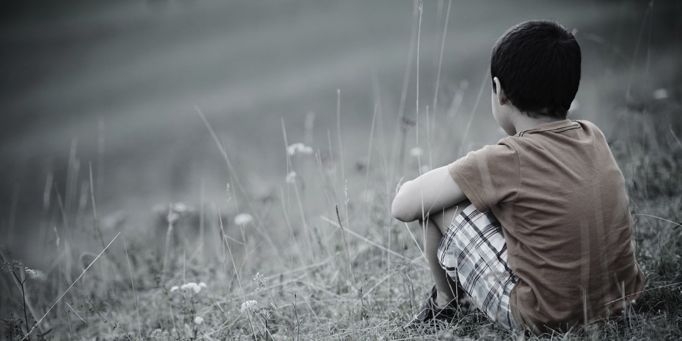
Signs your child is being bullied
Keep your eyes and conversations open to help identify bullied children.
Victims of bullying often display warning signs, the causes of which can be misunderstood or ignored. Because of the long-term ramifications of bullying, both for the abused and the abuser, it's very important to learn which signs best suggest that your child is being bullied.
Here are five important tell-tale signs of bullying that absolutely should not be ignored:
1. Physical symptoms
If you suspect that your child is being bullied, then be sure to keep track of the child's physical health. Are there any injuries that seem to develop periodically? More importantly, are there unexplained physical symptoms? New studies suggest that many victims of bullying are prone to many of the same physical symptoms that are caused by excessive stress. Symptoms to watch for include aches and pains, difficulty breathing, diarrhea, and bed-wetting.
2. Emotional Symptoms
If your child is being bullied, there may be subtle emotional signs as well. Depression and indifference are most commonly reported. Children may seem to interact with others less often than they had in the past, or they may seem to lose interest in activities and hobbies that they once loved. Any changes in habit or routine should be considered strong signs that something is fundamentally wrong. For instance, sleep and appetite can be strongly affected. As anyone can see from national news, the emotional consequences of bullying can be catastrophic. Violent outbursts and school shootings are among the most extreme of these.
3. Character traits
In addition to the most typical signs that your child is being bullied, you may want to take a vested interest in learning as much as you can about your child's personality. Many children are more likely to be bullied based on a variety of factors that parents are less likely to consider, depending on the child. Ask yourself if your child is somehow different from other children in a way you may have overlooked. Shorter? Taller? Heavier? Lighter?
Another example revolves around teens who identify as homosexual or transgender. These kids are much more likely to be targeted by bullies. Many parents perhaps make the mistake of assuming they know their child's sexual orientation. Don't be afraid to have open, informative conversations with your child as they grow into adolescence. Ask them about their feelings and their experiences with other children of both genders. Always be a conduit that your children can use to speak their minds.
Other children who are more predisposed to bullying are those of different ethnic backgrounds or nationalities. If your child has strong religious convictions, is disabled, or has special needs, the chances of bullying increase substantially. Anything that can be misunderstood by a child's peers may be used as an excuse for aggressive behavior.
4. Silence everlasting
All parents want to know how their child's day went. When you ask this question and your child has little to say, it's important to dig deeper. In order for you to know and understand what's going on in their lives, your children must be taught to be forthright with you. Obviously, it's not always easy to compel our teenagers to speak up.
Children who are bullied are often deeply ashamed of what they've been through, and in part may blame themselves. Because of this, they may feel weak, display the aforementioned physical and emotional symptoms and become too embarrassed to seek your aid. When children are constantly bullied, the looming fear of reprisal is always deeply ingrained in their minds. Assure them they can be protected from any possible retaliation from the bully.
In order to build a connection with bullied children, speak to them about your own experiences with bullying. Explain that there are always sources of help available, and make them understand the need to be strong and honest about everything that's happening.
5. The cycle of bullying
It's not at all uncommon for children who were once bullied to transform into bullies themselves, and for that reason it's also important for parents to understand indicators that their child is perhaps bullying others as well.
MaryAnn Byrne, a nationally certified educator of sixteen years, commented on the phenomenon: "Some children will muddle through and grow up with a variety of issues including anxiety, depression, social phobia and so on. Some children turn on themselves. They become self-injurious, suicidal, substance abusers, drop out of school, society and sometimes life. Others become bullies."
So how does an adolescent bully act? Like their victims, bullies are more likely to abuse alcohol and other drugs. They differ from their victims because they're more likely to entertain sexual activity at a younger age, and less likely to be safe. They're more likely to become easily agitated, or speak out against authority. They're more likely to pick a fight. When these actions are taken by adolescent children, it's important to understand the need to end the behavior as quickly as possible so it doesn't last into adulthood. Speak to them, learn about your options, and seek help.
At least 70% of those in middle school and high school have been bullied (according to the American Psychological Association). With numbers so high, it's more important than ever to ensure that parents, bullies, and the bullied are educated on the matter. It's important for us to share what we know with our children, and to grant them an open environment in which they can share as well. If we continue to sweep this issue under the rug, then we're no better than the bullies.
Originally published by Tara Heath.
For more articles from Growing Faith, subscribe to our monthly e-newsletter.
To hear about the latest books and resources from Youthworks Media, subscribe here.







